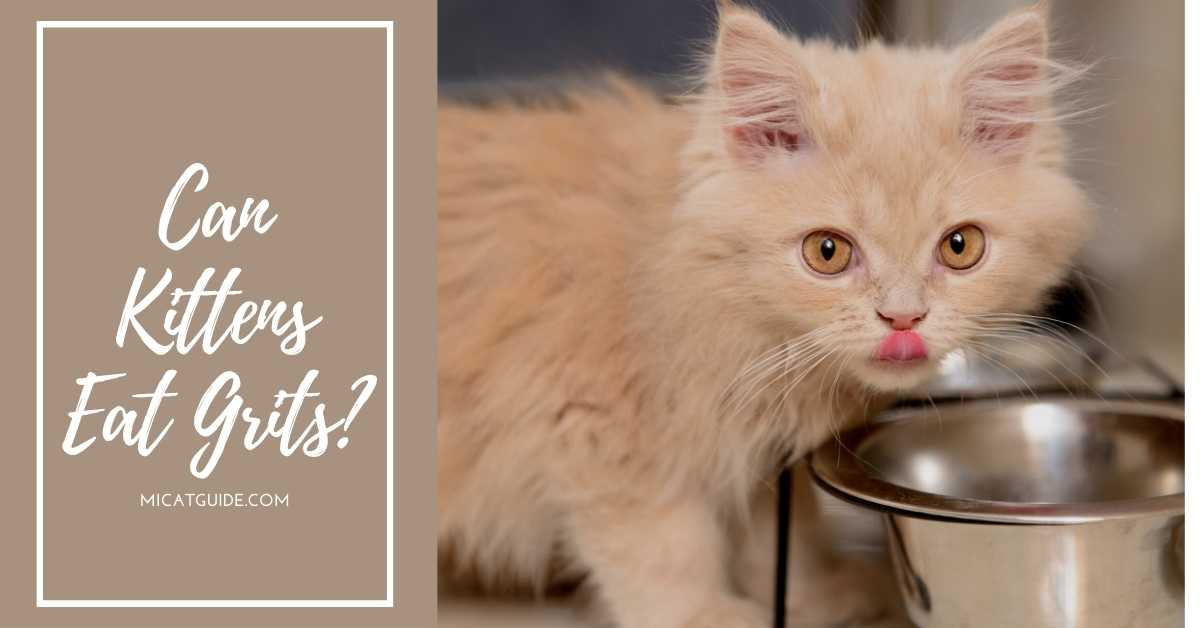Grits are a traditional Southern morning dish. If you make grits frequently, you've probably wondered if a taste of this food will harm your cat. Can cats eat grits? Are grits healthy for them?
Introduction
Can Cats Consume Grits? The spotlight is now on grits in our never-ending quest to determine which foods are healthy and good to our cats. Grits, a classic Southern food, are made from ground maize and have a relaxing feel. Our cats, on the other hand, we're not sure if they can eat grits.
In this article, we will look at the nutrients in grits, the potential benefits and risks for cats, if grits are safe for cats to eat, how easy they are to digest, symptoms of possible poisoning, how to avoid it, and how much to feed your cat. Throughout this investigation, we will also look into different food options and supplements that are better for a cat's nutrition.
Grits' Nutritional Composition
Grits are a basic cuisine prepared from coarsely crushed corn that is frequently served as a hot breakfast or side dish. However, due to the way grits are prepared, they may not match the nutritional demands of a cat. Grits are primarily composed of carbohydrates, as opposed to a cat's diet, which is strong in protein.
The Advantages of Feeding Grits to Your Cat
Can Cats Consume Grits? Grits are primarily carbs, thus they aren't particularly beneficial to a cat's health. Cats are obligate carnivores, which means they acquire all of their protein from meat.
Potential Dangers of Feeding Grits to Cats
There are various concerns associated with feeding grits to cats. Cats have a special digestive tract designed to break down animal proteins. Adding carbs, such as those found in grits, can create digestive issues as well as other health issues.
Is it safe for cats to eat grits?
Grits may not immediately harm cats if they are provided plain, unseasoned, and in tiny quantities. However, because they lack nutritional value, they should not be a regular or significant part of a cat's diet.
Grits Digestibility in Cats
Can Cats Consume Grits? Cats' digestive tracts are precisely designed to break down and utilize animal proteins. Even while they may consume tiny amounts of plant-based foods, they have difficulty digesting carbohydrates such as those found in grits.
Grits Poisoning Symptoms in Cats
Can Cats Consume Grits? Cats can become ill if they consume too much grits, especially if they consume it all at once. Grits are difficult for cats to digest since they are unfamiliar with them. This can result in gastrointestinal issues such as vomiting and diarrhea.
Preventing Unintentional Consumption
The most important thing you can do to keep your cat healthy is to prevent illness. Storing grits and other similar foods safely out of reach can reduce the likelihood that they will be eaten by accident.
Grits Feeding Rates and Frequency
If you offer your cat grits, you must do it in moderation. Grits should not be consumed on a regular basis by cats since they do not meet their nutritional requirements.
Supplements and Alternatives
The best way to meet a cat's nutritional requirements is to feed it cat chow that has all of the nutrients it need. Grits can be replaced with safer and more appropriate foods such as lean meats and cat treats.
Finally, can cats eat grits?
To summarize, while tiny amounts of plain grits are not immediately dangerous to cats, they are not a recommended meal choice. Specialized cat food is the greatest option to suit a cat's specific nutritional requirements.
Last Thoughts on Feeding Grits to Cats
Can Cats Consume Grits? Understanding what a cat requires for nutrition is critical to their health. Your cat will be healthier and happier if its diet is well-balanced and has all of the nutrients it requires.
Consult your veterinarian for advice on what to feed your pet.
Can Cats Consume Grits? Before feeding human food to a cat, consult with a veterinarian because cats have different nutritional demands than dogs. Expert advice ensures that the food you select meets your cat's specific dietary requirements.
In a world where we like giving our cats treats, it's vital to remember that what tastes good to us may not be good for our feline friends.

